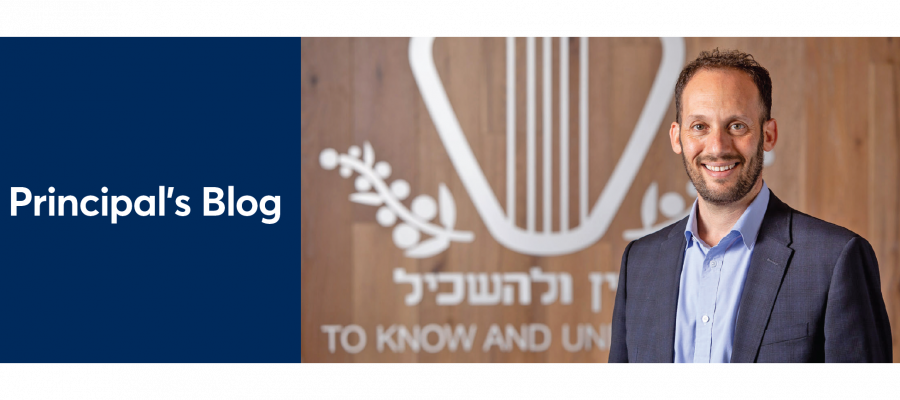
Examining the efficacy of exams
Many of us have a school examination story that reflects the particularly challenging place that these experiences play in our education. My mother used to tell me about a high school examination which she used as a life lesson. She had written an essay, reread it in the minutes before submission and then decided it was hopeless and crossed it out writing “Please ignore this!” as she hastily dot-pointed a revised response in the remaining time.
My mother’s teacher returned the paper with a note that said that she would have received full marks had she not crossed the essay out but did far worse as a consequence of her self-doubt.
While not an exam, I recall that when I was a young boy there was a particular spelling test that I undertook as a student at The King David School. It was based on the “ie” letter combination and I scored zero out of twenty as I wrote every answer “ei”. As humiliated as I felt, I thought that my friend who got one out of twenty should be more embarrassed – at least I was consistent!
This week, students across Years 9 to 11 have moved into end-of-semester examinations. The Magid Campus has that slightly nervous and excited buzz as students shift gear into exam mode. Despite all our calming expressions that these examinations are not a statement of worth, but merely an indicator of what learning has been consolidated and what gaps may need addressing, our students do tend to respond to the cultural norms that are associated with the high-stakes assessment.
Throughout my time as an educator, I have witnessed fluctuations in debates around the efficacy of examinations as a measure of knowledge and skill. Some argue that these practices may not be a good measure of students who may possess the requisite knowledge and skill, but do not respond well to the time constraints or the anxiety-invoking nature of the examination hall.
Others, however, state that examinations, and the cultural milieu that surrounds them, provide a level of accountability that motivates students to consolidate their learning and strive to achieve their best.
A new variable has entered the debate that I suspect will settle this discussion for at least the short term. The advent of user-accessible Artificial Intelligence programs has meant that a return to “old school” paper and pen based assessments as a display of learning are perhaps more necessary than ever as a means of establishing the veracity and authenticity of student work. While ChatGPT can be misused in take-home typed assessments, the students must write every word in a written exam.
While examinations will likely remain an integral means of measuring student progress, it is vital that students and parents are reminded that this is their true purpose. They are not a reflection of status or value – they are an indicator of what we now know and what we still have to learn.
Shabbat Shalom,
Marc Light
